

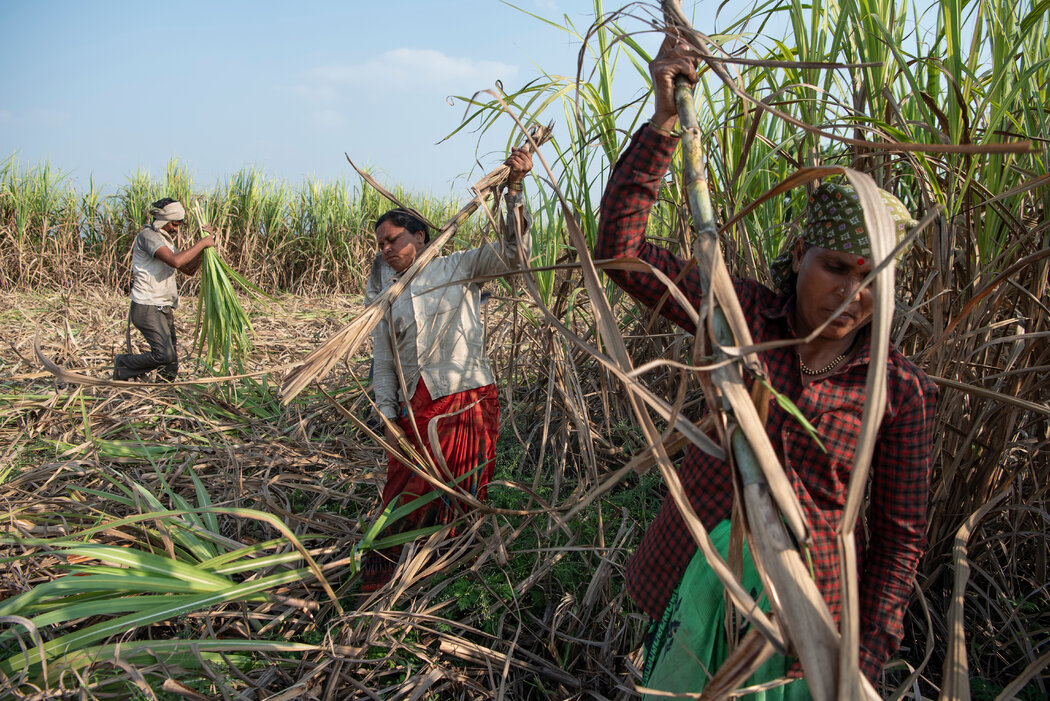
BEED, India — Archana Ashok Chaure has given her life to sugar.
印度比德——阿卡娜·阿肖克·肖丽把这辈子都交给了糖。
She was married off to a sugar cane laborer in western India at about 14 — “too young,” she said, “to have any idea what marriage was.” Debt to her employer keeps her in the fields.
她14岁左右就嫁给了印度西部的一个甘蔗工人——“太年轻了,”她说,“根本不知道婚姻是什么。”因为欠雇主的债,她得一直在地里干活。
Last winter, she did what thousands of women here are pressured to do when faced with painful periods or routine ailments: She got a hysterectomy and got back to work.
去年冬天,她做了这里成千上万的女性在面对痛经或常见病时不得不做的事情:切除子宫,然后继续工作。
This keeps sugar flowing to companies like Coke and Pepsi.
这样的工作让糖得以源源不断地流向可口可乐和百事可乐等公司。
The two soft drink makers have helped turn the state of Maharashtra into a sugar-producing powerhouse. But a New York Times and Fuller Project investigation has found that these brands have also profited from a brutal system of labor that exploits children and leads to the unnecessary sterilization of working-age women.
这两家软饮料制造商令马哈拉施特拉邦成为制糖重地。但《纽约时报》和富勒项目的一项调查发现,这些品牌也从残酷的劳动制度中获利,这种制度剥削儿童,导致适龄劳动妇女接受不必要的绝育手术。
Our reporters interviewed people at every stage of the supply chain, including dozens of laborers, contractors, mill owners and former executives at multinational companies. The Times also examined medical records and interviewed doctors, lawmakers, government officials, researchers and aid workers who have spent careers examining the livelihoods of Maharashtra’s sugar workers.
我们的记者采访了供应链各个环节的人员,包括数十名劳工、承包商、工厂老板和跨国公司的前高管。时报还查阅了医疗记录,并采访了医生、议员、政府官员、研究人员和援助人员,他们一直致力于研究马哈拉施特拉邦制糖工人的生计。
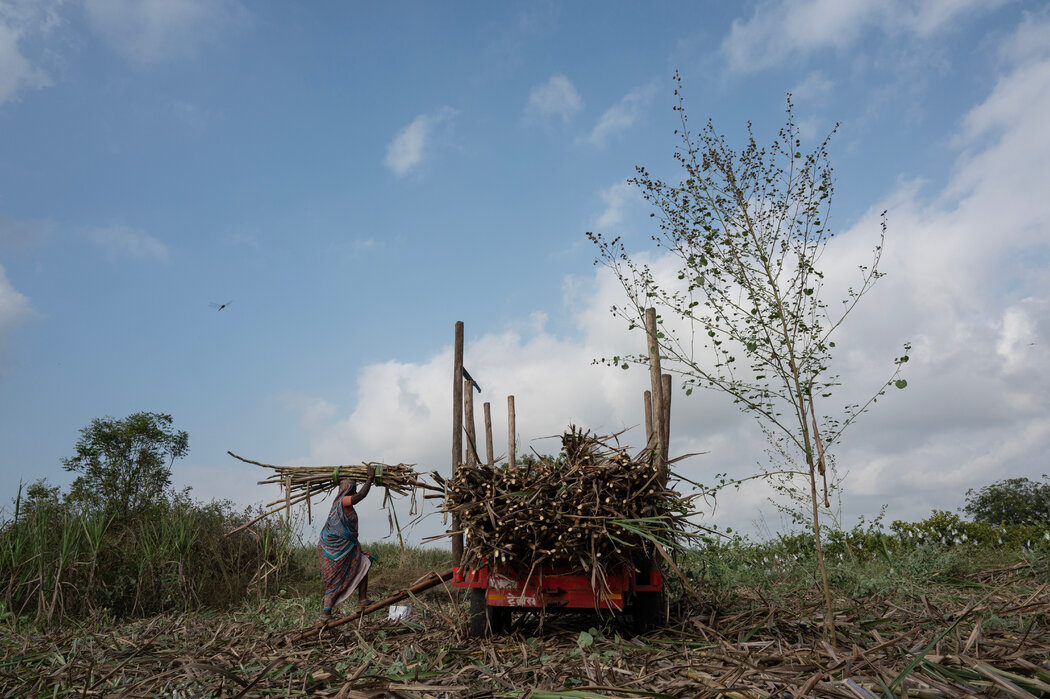
Young girls are pushed into illegal child marriages so they can work alongside their husbands cutting and gathering sugar cane. Instead of receiving wages, they work to pay off advances from their employers — an arrangement that requires them to pay a fee for the privilege of missing work, even to see a doctor.
年轻女孩被迫走入非法童婚,这样就可以和丈夫一起收割甘蔗。她们不但拿不到工资,反而要靠工作来偿还雇主的预付款——在这种安排之下,她们如果不去上班需要要支付费用,甚至请病假看医生也不例外。
An extreme yet common consequence of this financial entrapment is hysterectomies. Labor brokers loan money for the surgeries, even to resolve ailments as routine as heavy, painful periods. And the women — most of them uneducated — say they have little choice.
这种财务陷阱会产生一个极端但却非常普遍的后果,那就是子宫切除。劳工中介为手术提供贷款,甚至是为了解决像月经过多和痛经这样的常见病。而这些大多数没有受过教育的女性说,她们别无选择。
Hysterectomies keep them working, undistracted by doctor visits or the hardship of menstruating in a field with no access to running water, toilets or shelter.
子宫切除术使她们能够继续工作,不会分心去看医生,也不会担心在没有自来水、厕所或休息处的田地里面对经期的困境。
Removing a woman’s uterus has lasting consequences, particularly if she is younger than 40. In addition to the short-term risks of abdominal pain and blood clots, it often brings about early menopause, raising the chance of heart disease, osteoporosis and other ailments.
摘除子宫会造成持久的后果,尤其是对40岁以下的女性而言。除了腹痛和血栓等短期风险,它还经常导致更年期提前,增加罹患心脏病、骨质疏松和其他疾病的风险。
But for many sugar laborers, the operation has a particularly grim outcome: Borrowing against future wages plunges them further into debt, ensuring that they return to the fields next season and beyond. Workers’ rights groups and the United Nations labor agency have defined such arrangements as forced labor. 但对许多制糖工人来说,这个活计还有一个特别严峻的后果:以未来工资为抵押借款使他们陷入更深的债务泥潭,确保他们下一季甚至在更长的时间里重返田间。工人权利组织和联合国劳工机构将这种安排定义为强迫劳动。
Sugar producers and buyers have known about this abusive system for years. Coca-Cola’s consultants, for example, visited the fields and sugar mills of western India and, in 2019, reported that children were cutting sugar cane and laborers were working to repay their employers. They documented this in a report for the company, complete with an interview with a 10-year-old girl.
糖业生产商和买家多年前就知道这种虐待劳工的制度。例如,可口可乐的顾问参观了印度西部的田地和糖厂,并在2019年报告称,儿童在砍伐甘蔗,工人在努力工作偿还雇主。他们在给公司的一份报告中记录了这一情况,并附上了对一个10岁女孩的采访。
In an unrelated corporate report that year, the company said that it was supporting a program to “gradually reduce child labor” in India.
在同年的一份与此无关的公司报告中,公司表示正在支持一项在印度“逐步减少童工”的计划。
Labor abuse is endemic in Maharashtra, according to a local government report and interviews with dozens of workers. Maharashtra sugar has been sweetening cans of Coke and Pepsi for more than a decade, according to an executive at NSL Sugars, which operates mills in the state.
根据当地政府的一份报告以及对数十名工人的采访,不当对待劳工在马哈拉施特拉邦很普遍。在该邦经营工厂的NSL糖类公司的一位高管表示,马哈拉施特拉邦的糖厂十多年来一直为可口可乐和百事可乐罐装饮料提供甜味剂。
PepsiCo, in response to a list of findings from the Times, confirmed that one of its largest international franchisees buys sugar from Maharashtra. The franchisee just opened its third manufacturing and bottling plant there. A new Coke factory is under construction in Maharashtra, and Coca-Cola confirmed that it, too, buys sugar in the state.
在回应时报的一系列调查结果时,百事公司证实其最大的国际特许经销商之一从马哈拉施特拉邦购糖。这家特许经营商刚刚在那里开设了第三家制造和装瓶厂。一家新的可口可乐工厂正在马哈拉施特拉邦建设中,可口可乐公司还证实他们也从该邦购糖。
These companies use the sugar primarily for products sold in India, industry officials say. PepsiCo said the company and its partners purchase a small amount of sugar from Maharashtra, relative to the total production in the state.
行业官员说,这些公司主要将当地购买的糖用于在印度销售的产品。百事公司表示,相对于马哈拉施特拉邦的总产量而言,该公司及其合作伙伴从该邦的购糖数量较少。
Both companies have published codes of conduct prohibiting suppliers and business partners from using child and forced labor.
两家公司都发布了行为准则,禁止供应商和商业伙伴使用童工和强迫劳工。
“The description of the working conditions of sugar-cane cutters in Maharashtra is deeply concerning,” PepsiCo said in a statement. “We will engage with our franchisee partners to conduct an assessment to understand the sugar-cane cutter working conditions and any actions that may need to be taken.”
“对马哈拉施特拉邦甘蔗收割工人工作条件的描述令人深感担忧,”百事公司在声明中表示。“我们将与我们的特许经营伙伴进行评估,以了解甘蔗收割工人的工作条件以及可能需要采取的任何行动。”
Coca-Cola declined to comment on a detailed list of questions.
可口可乐拒绝就一份详细列出的问题清单置评。
The heartland of this exploitation is the district of Beed, an impoverished, rural region of Maharashtra that is home to much of the migrant sugar-cutting population. One local government report surveyed approximately 82,000 female sugar cane workers from Beed and found that about 1 in 5 had had hysterectomies. A separate, smaller government survey estimated the figure at 1 in 3.
这种不当行为的中心地带是比德县,马哈拉施特拉邦一个贫困的农村地区,也是许多外来甘蔗收割工人的聚集之地。当地政府的一份报告调查了比德县约8.2万名甘蔗女工,发现其中约五分之一的人做过子宫切除术。另一项规模较小的政府调查估计,这一数字为三分之一。
The abuses continue — despite local government investigations, news reports and warnings from company consultants — because everyone says somebody else is responsible.
尽管地方政府进行了调查,新闻报道和公司顾问发出警告,但不当行为仍在继续,因为每个人都说这是其他人的责任。
Big Western companies have policies pledging to root out human rights abuses in their supply chains. In practice, they seldom, if ever, visit the fields and largely rely on their suppliers, the sugar mill owners, to oversee labor issues.
西方大公司的政策承诺根除其供应链中的侵犯人权行为。实际上,他们很少(如果有的话)去实地考察,而且很大程度上依赖他们的供应商——糖厂老板——来监督劳工问题。
The mill owners, though, say that they do not actually employ the workers. They hire contractors to recruit migrants from far-off villages, transport them to the fields and pay their wages. How those workers are treated, the owners say, is between them and the contractors.
不过,糖厂老板表示,他们实际上并没有雇佣这些工人。他们雇佣承包商从遥远的村庄招募外来工人,将他们运送到田地里并支付工资。厂主说,工人待遇是工人和承包商之间的事。
Those contractors are often young men whose only qualification is that they own a vehicle. They are merely doling out the mill owners’ money, they say. They could not possibly dictate working conditions or terms of employment.
这些承包商通常是年轻人,唯一的资质要求就是拥有一辆车。他们说,他们只是在分发工厂老板的钱。他们不可能规定工作条件或雇用条件。
A Push Toward Surgery
推广手术
Nobody pushes women to get hysterectomies as a form of population control. In fact, having children is commonplace. Because girls typically marry young, many have children in their teens.
迫使女性切除子宫不是为了控制人口。事实上,生育是很普通的行为。因为这里的女孩通常很早就结婚,许多人十几岁就有了孩子。
Instead, they seek hysterectomies in hopes of stopping their periods, as a drastic form of uterine cancer prevention or to end the need for routine gynecological care.
相反,她们做子宫切除术是为了防止月经,作为预防子宫癌的一种极端形式,或者为了不再需要常规的妇科护理。
India is the world’s second-largest sugar producer, and Maharashtra accounts for about one-third of that production.
印度是世界第二大食糖生产国,而马哈拉施特拉邦的食糖产量约占总产量的三分之一。
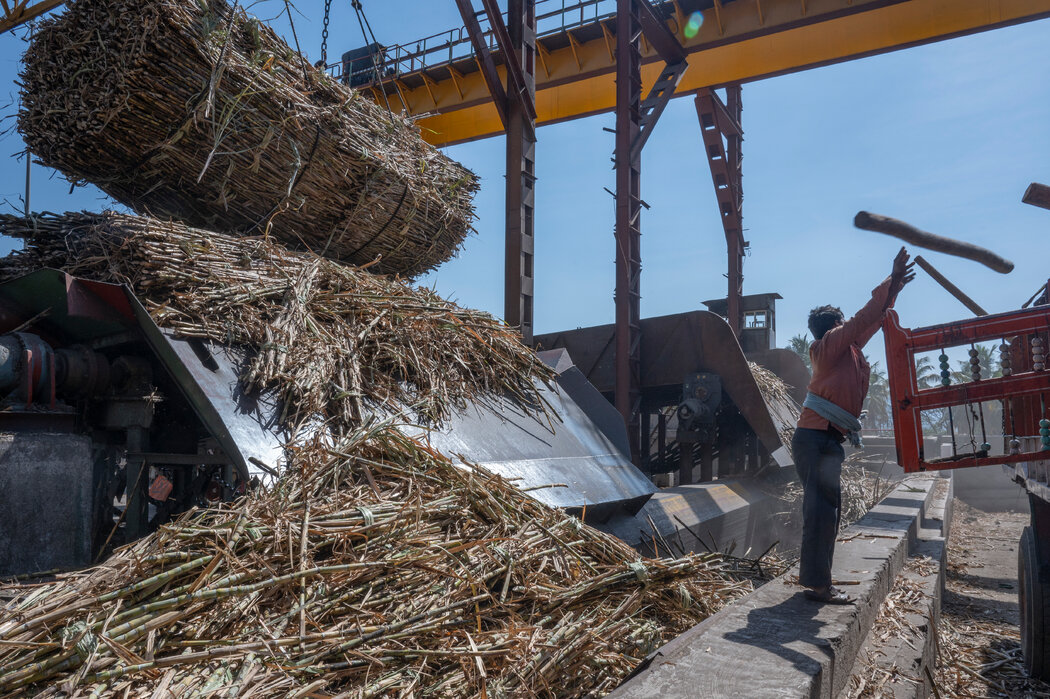
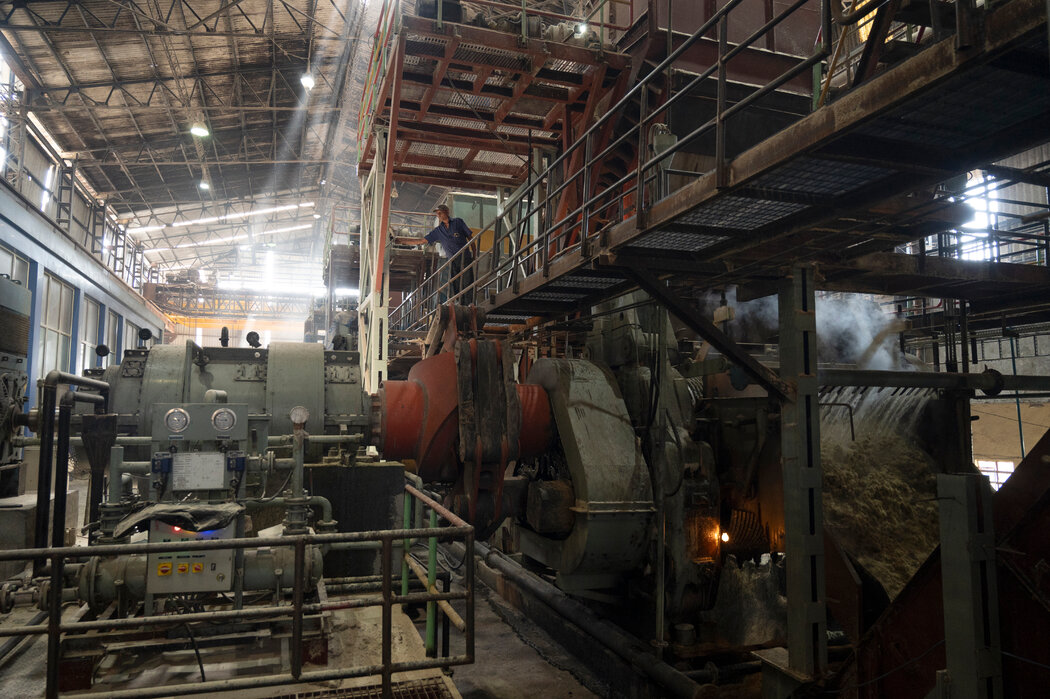
The abuses are born from the Maharashtra sugar industry’s peculiar setup. In other sugar regions, farm owners recruit local workers and pay them wages.
这些弊端源于马哈拉施特拉邦制糖业的特殊结构。在其他制糖地区,农场主雇佣当地工人并支付工资。
Maharashtra operates differently. About 1 million workers, typically from Beed, migrate for days to fields in the south and west. Throughout the harvest, from about October to March, they move from field to field.
马哈拉施特拉邦的运作方式不同。大约100万工人(通常来自比德)在南部和西部的甘蔗田地工作数日。在大约从10月到次年3月的整个收获季节,他们从一块地搬到另一块地。
Instead of wages from farm owners, they receive an advance — often around $1,800 per couple, or roughly $5 a day per person for a six-month season — from a mill contractor. This century-old system reduces labor costs for sugar mills.
他们不是从农场主那里得到工资,而是从工厂承包商那里得到预付款——通常是每对夫妇1800美元左右,或者在六个月的收获季节里每人每天约五美元。这个拥有百年历史的系统降低了糖厂的劳动力成本。
In the fields, where she has spent her life cutting sugar for a mill owned by NSL Sugars, Chaure, like the others, sleeps on the ground, spends hours a day hunched over and carries loads on her head.
肖丽一生在为NSL糖业旗下的一家工厂收割甘蔗,在田地里,和其他人一样,她睡在地上,每天弯腰工作好几个小时,把收割下来的东西顶在头上。
Tampons and pads are expensive and hard to find, and there is nowhere to dispose of them. Without access to running water, women address their periods in the fields, with reused cloth that they try to wash discreetly by hand.
卫生棉条和卫生巾价格昂贵,很难找到,而且没有地方可以清理它们。在没有自来水的情况下,妇女们在田地里用重复使用的布片来解决月经问题,她们悄悄手洗这些布片。
The women often have familiar ailments: pain that radiates down from their lower backs and prolonged or irregular periods that make work more difficult.
这些女性往往都有一些常见疾病:从腰部向下辐射的疼痛,经期延长或不规律,使工作更加困难。
“All the problems are intermingled with their personal hygiene and their economic condition. They have to work so hard,” said Dr. Ashok Belkhode, whose Maharashtra practice includes gynecology.
“所有问题都与她们的个人卫生和经济状况有关。她们不得不非常努力地工作,”阿肖克·贝尔寇德医生说,他在马哈拉施特拉邦的执业包括妇科。
Hysterectomy is a routine surgery performed around the world, although infrequently for women in their 20s and 30s. In India, it is more common, including as a form of birth control, and other parts of the country also have high hysterectomy rates. But in Maharashtra’s sugar industry, everyone — contractors, other workers, even doctors — pushes women toward the surgery.
子宫切除术在世界各地都是一种常规手术,但对于二三十岁的女性来说并不常见。这种手术在印度更为常见,有时是作为一种节育方式,印度其他地区的子宫切除率也很高。但在马哈拉施特拉邦的制糖产业里,所有人——承包商、其他工人,甚至医生——都在推动妇女接受这种手术。
Married to and for Field Work
为了在地里工作而结婚
In her wedding photographs, Chaure stares straight-faced into the camera. She had never met the groom. But that was normal. The same had happened to many of her friends.
在婚纱照里,肖丽面无表情地直视着镜头。她当时还未见过新郎。但这很正常。她的许多朋友也是如此。
Like many rural women in Maharashtra, Chaure does not know her exact age but is in her 30s. She figures she was about 14 on her wedding day. It was two years after she dropped out of her village school so her parents could take her to the sugar fields.
与马哈拉施特拉邦的许多农村妇女一样,肖丽也不知道自己的确切年龄,但她应该上了30。她估计自己结婚那天大约14岁。那是在父母为了能带她去蔗糖地干活,让她从村里的学校辍学两年后。
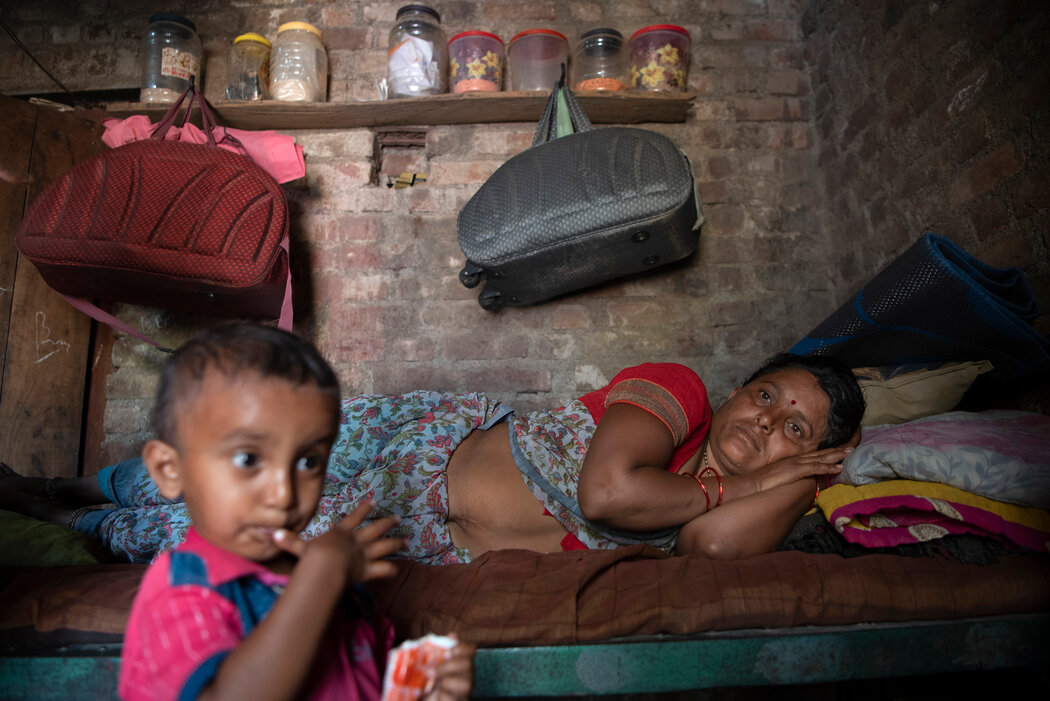
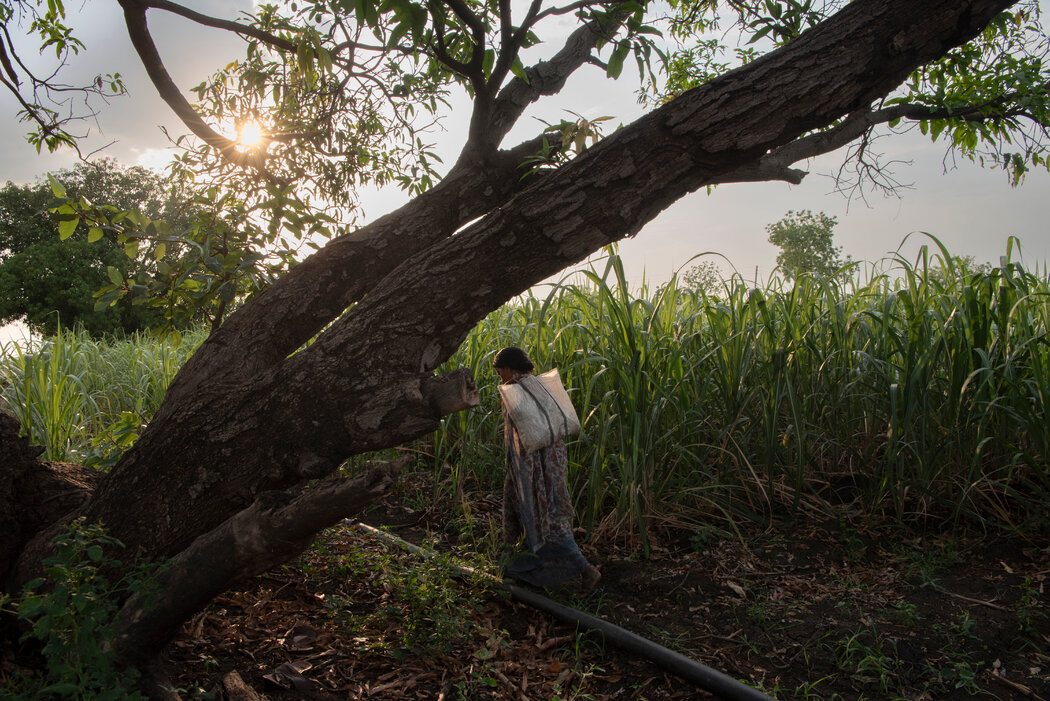
She knew that marriage meant the end of something. She had dreamed of becoming a nurse. But marriage is the moment when many girls give up their futures, and their bodies, to sugar.
她知道,婚姻意味着某种东西的终结。她曾梦想成为一名护士。但是,结婚对许多女孩来说意味着将自己的未来和身体都交给糖。
Every fall before the harvest, usually in October, the mill owners dispatch contractors to villages in Beed like Chaure’s to recruit laborers.
每年秋季收割前,通常在10月,磨坊主都会派遣承包商到类似于肖丽在比德的村庄等地招募劳动力。
Child marriage is illegal in India and is regarded internationally as a human rights violation. Its roots in India run deep, and it has complex cultural and economic causes.
童婚在印度是非法的,在国际上被视为侵犯人权的行为。但童婚在印度根深蒂固,有着复杂的文化和经济原因。
But in this part of Maharashtra, two economic incentives push girls into marriage.
但在马哈拉施特拉邦的这个地区,有两种经济刺激因素促使女孩结婚。
First, sugar cutting is a two-person job. Husband-and-wife teams make twice as much as a man working alone. The two-person system is known as koyta, after the sickle that cuts the sugar cane.
首先,切糖是一项双人工作。夫妻合作的收入是一个人的两倍。这种二人工作制被称为“科伊塔”(koyta),取自砍甘蔗的镰刀。
Second, the longer that children accompany their parents in the field, the longer parents must support them. So families often seek to marry off daughters young, even in early adolescence.
其次,子女在田地和父母同住的时间越长,父母就必须抚养他们越久。因此,家庭往往希望女儿早早出嫁,甚至在刚进入青春期的时候就出嫁。
“If we are married, their stress reduces, and the responsibility is shifted to our husband’s shoulders,” Chaure said. “So they marry us off.”
“如果我们结婚了,他们的压力就会减轻,责任就会转移到我们的丈夫肩上,”肖丽说。“所以他们就把我们嫁出去了。”
Workers said there were almost never official contracts or records tallying how much sugar cane they cut. At the end of the season, contractors almost always declare that a balance remains.
工人们说,几乎从来没有正式合同或记录来统计他们砍了多少甘蔗。收割季结束时,承包商几乎总是宣布还有预付款没有抵消。
Early Warning Signs
早期预警信号
Shubha Sekhar, a Coca-Cola executive who has focused on human rights in India, talked during the COVID pandemic to a group of university students. Speaking by videoconference, she described the challenges of operating in a country that Coke’s own documents identify as risky because of child and forced labor.
舒巴·塞卡尔是可口可乐的一名管理人员,一直关注印度的人权问题,在新冠大流行期间,她与一群大学生进行了交流。通过视频会议,她描述了在这个国家运营所面临的挑战,连可口可乐公司自己的文件也认为这里因存在童工和强迫劳动而构成风险。
Typically, corporations buy from suppliers, she explained. With sugar, she said, at times, “one doesn’t have visibility of what is happening beyond, in deep agriculture.”
But those deep fields are typically just outside the doors of Coke’s own suppliers. Sugar cane loses weight — and value — each minute after it is cut, so mills are usually built close to the farms.
All of the problems, including child marriage and hysterectomies, have been known in the region for years.
There was even a moment, not too long ago, when things might have changed.
In 2019, the newspaper The Hindu BusinessLine reported on an unusually high number of hysterectomies among female sugar cane cutters in Maharashtra. In response, a state lawmaker, along with a team of researchers, launched an investigation. They surveyed thousands of women.
Their report that year described horrible working conditions and directly linked the high hysterectomy rate to the sugar industry. Unable to take time off during pregnancy or for doctor visits, women have no choice but to seek the surgery, the report concluded.
By happenstance, Coca-Cola issued its own report that year. After unrelated accusations out of Brazil and Cambodia about land-grabbing, Coca-Cola had hired a firm to audit its supply chain in several countries.
The auditors, from a group called Arche Advisors, visited 123 farms in Maharashtra and a neighboring state with a small sugar industry.
They found children at about half of them. Many had simply migrated with their families, but Arche’s report found children cutting, carrying and bundling sugar cane at 12 farms.
Arche noted that Coca-Cola suppliers did not provide toilets or shelter. And it cited “flags in the area of forced labor.” Only a few of the mills it surveyed had policies on bonded or child labor, and those applied only to the mills, not the farms.
The government report called on factories to provide water, toilets, basic sanitation and the minimum wage.
Few if any changes have been carried out.
Major buyers like PepsiCo and Coca-Cola say they hold their suppliers to exacting standards for labor rights. But that promise is only as good as their willingness to monitor thousands of farms at the base of their supply chains.
That rarely happens. An executive at NSL Sugars, a Coca-Cola and PepsiCo franchisee supplier that has mills around the country, said that soda company representatives could be scrupulous in asking about sugar quality, production efficiency and environmental issues. Labor issues in the fields, he said, would almost never come up.
Soda company inspectors seldom if ever visit the farms from which NSL sources its sugar cane, the executive said. The PepsiCo franchisee, Varun Beverages, did not respond to calls for comment.
Mill owners, too, rarely visit the fields. Executives at Dalmia Bharat Sugar and NSL Sugars say they keep virtually no records on their laborers.
Ed Potter, the former head of global workplace rights at Coca-Cola, said the company had conducted many human rights audits during his tenure. But with so many suppliers, oversight can seem random.
Sanjay Khatal, the managing director of a major lobbying group for sugar mills, said that mill owners could not provide any worker benefits without being seen as direct employers. That would raise costs and jeopardize the whole system.
One thing that changed after the government report was a rule intended to prevent unscrupulous doctors from profiting off unneeded surgeries.
“Some doctors have made it a way to earn more money,” said Dr. Chaitanya Kagde, a gynecologist at a government-run facility in Beed. (Although public hospitals offer hysterectomies free or at reduced cost, they are often far from rural women.)
The new rule required the civil surgeon, the district’s top health official, to approve hysterectomies.
But hysterectomies on younger women continue. Although many doctors agree that some surgeons perform them too often, they also note that patients request the surgery.
In an interview last May, Beed’s civil surgeon at the time, Suresh Sable, said the government should not second-guess doctors. He said his office still approved 90% of hysterectomy requests.
摄影:Saumya Khandelwal
本文与富勒项目(The Fuller Project)合作报道,这是一家新闻非营利组织,主要报道影响女性的全球问题。Ankur Tangade对本文有报道贡献。
Megha Rajagopalan是一名国际调查记者,常驻伦敦。
翻译:纽约时报中文网
她解释说,通常情况下,公司从供应商那里购买。她说,对于糖来说,有时“在深层农业,人们并不了解外面发生的情况”。
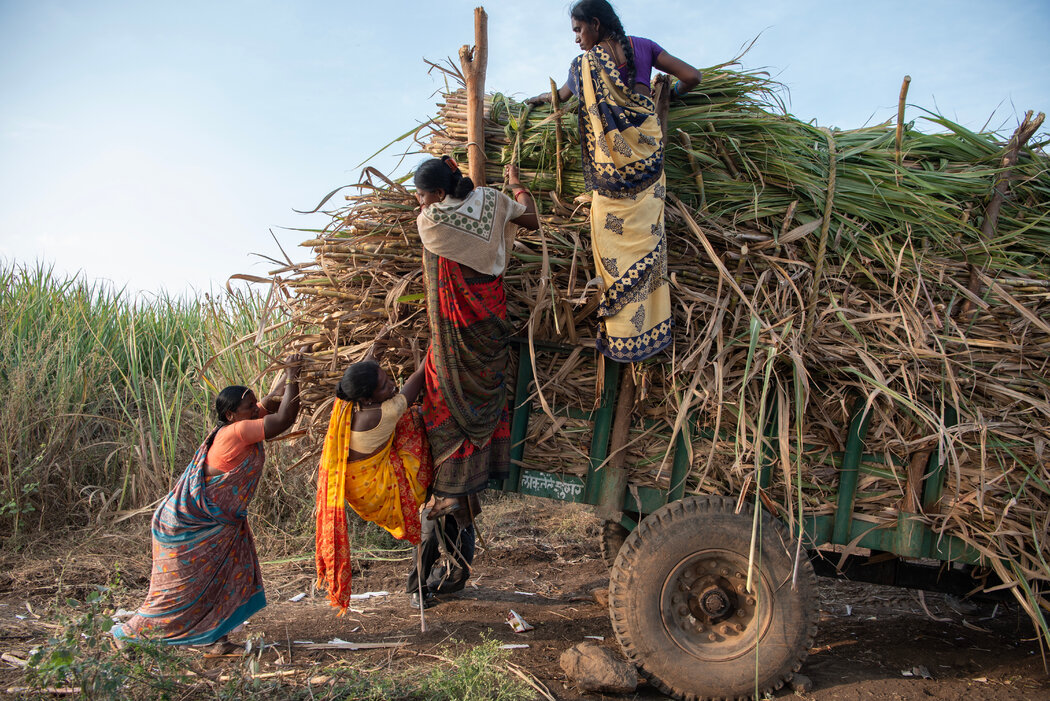
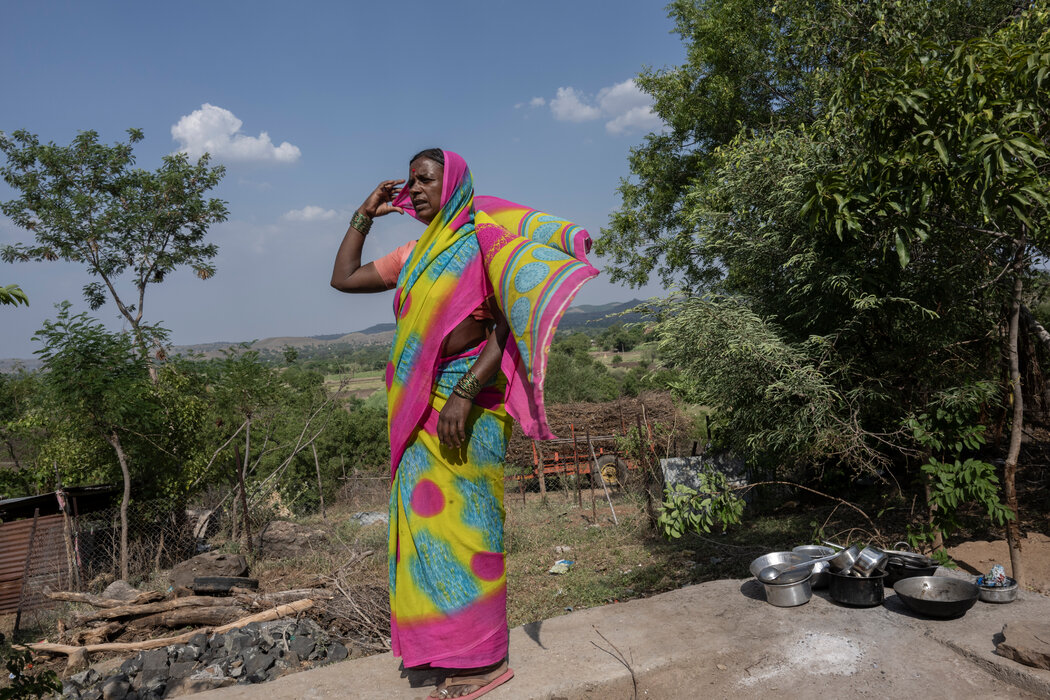
但这些农田通常就在可口可乐自己的供应商门外。甘蔗在砍下后每分钟都在失去重量,也在失去价值,因此糖厂通常都建在田地附近。
包括童婚和子宫切除术在内的所有问题都已在该地区存在多年。
就在不久前,甚至有那么一瞬间,事情可能发生变化。
2019年,印度《商业前线报》报道了马哈拉施特拉邦女性甘蔗收割工人当中异常高的子宫切除手术数量。为此,一名州议员和一组研究人员发起了调查。他们对数千名女性进行了调查。
他们当年的报告描述了可怕的工作条件,并将高子宫切除率与制糖业直接联系起来。报告的结论是,由于无法因为怀孕或看医生而请假,女性别无选择,只能诉诸于子宫切除术。
巧合的是,可口可乐当年也发布了自己的报告。在巴西和柬埔寨提出有关侵占土地指控(与此事无关)后,可口可乐聘请了一家公司对它在多个国家的供应链进行审计。
这家审计公司名为Arche Advisors,该公司审计员走访了马哈拉施特拉邦和邻近一个制糖业规模较小的邻近邦,共计123个农场。
他们发现大约一半农场有儿童。许多儿童只是随家人一起迁移,但Arche公司的报告发现,有儿童在其中12个农场从事收割、搬运和捆扎甘蔗的活计。
Arche公司指出,可口可乐供应商没有提供厕所和住处。该公司还表示有“强迫劳动领域的危险信号”。在接受他们审计的糖厂中,只有少数制定了关于契约劳工或童工的政策,而且这些规定仅适用于工厂,不适用于农场。
政府的报告呼吁工厂提供水、厕所、基本卫生设施和最低工资。
但几乎没有任何改变得到实施。
百事可乐和可口可乐等主要买家表示,他们要求供应商遵守严格的劳工权利标准。但这一承诺的效果取决于他们是否愿意监控基层供应链数以千计的农场。
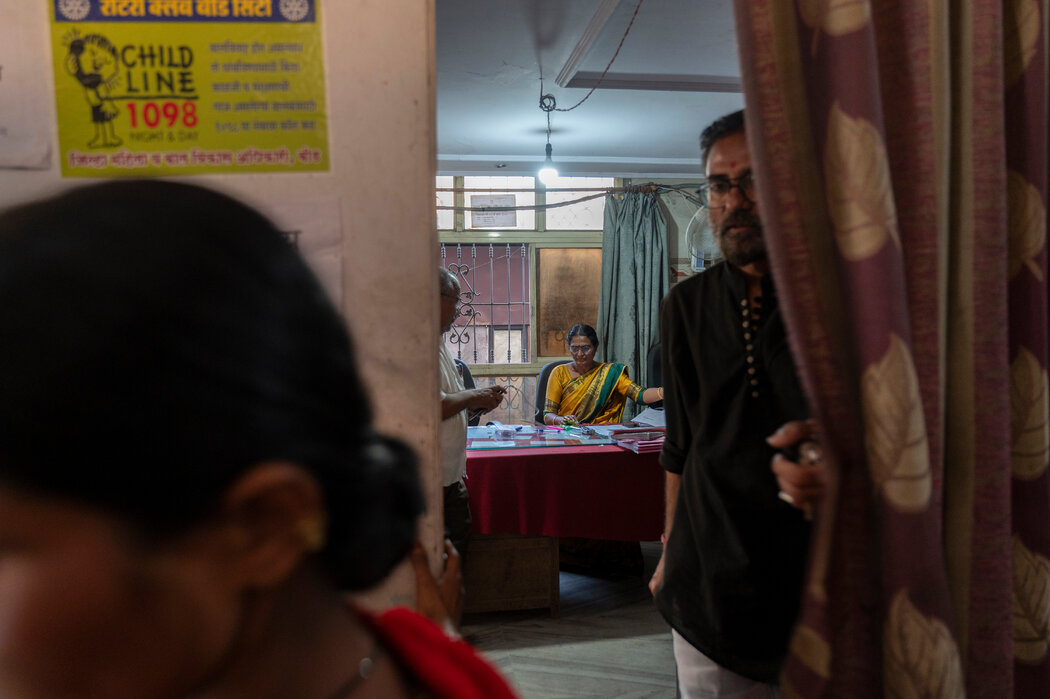

这种情况很少发生。可口可乐和百事可乐特许经营供应商NSL Sugars在印度全国各地均设有工厂,该公司的一位高管表示,汽水公司代表在询问糖质量、生产效率和环境问题时可能会一丝不苟。他说,在田间的劳工问题几乎从未提及。
这位高管表示,汽水公司检查员很少前往那些NSL采购甘蔗的农场。百事可乐特许经营商Varun Beverages没有回应置评请求。
糖厂老板也很少到田里去。Dalmia Bharat Sugar和NSL Sugars的高管表示,他们几乎没有保留任何有关工人的记录。
可口可乐全球工作场所权利前负责人埃德·波特表示,该公司在他任职期间进行了多次人权审计。但由于供应商众多,监管工作似乎是随机性的。
糖厂主要游说团体的总经理桑贾伊·哈塔尔表示,糖厂主如果提供了工人福利就会被视为直接雇主。这样做的话会增加成本并危及整个系统。
政府报告发布后发生了一个变化:出现了一项旨在防止无良医生从非必要手术中获利的规定。
“一些医生已经把它作为赚钱的手段,”比德一家政府运营机构的妇科医生柴坦尼亚·卡格德医生说。尽管公立医院提供免费子宫切除术,或是费用减免,但它们往往距离偏远地区妇女很远。
新规定要求民事外科医生,也就是该地区最高卫生官员来批准子宫切除术。
但对年轻女性的子宫切除术仍在继续。尽管许多医生都认为一些外科医生过于频繁地进行手术,但他们也注意到患者往往会要求进行手术。
去年5月的一次采访中,比德当时的民事外科医生苏雷什·塞布尔表示,政府不应该质疑医生。他说他的办公室仍然批准了90%的子宫切除术请求。